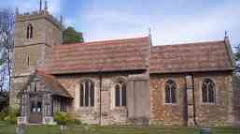
Granddaughter, Hannah, on her swing
Fiction and reality sometimes collude, and that seems to be happening in my life. Over the last two years I have, with gaps, been steadily working my way through the Patrick O'Brian "Master and Commander" series of books. These novels, set against the backdrop of the Napoleonic Wars trace the friendship of a rising British naval officer, Jack Aubrey, and his close friend, Dr. Stephen Maturin, who sails with him as the ship's surgeon.
What makes these stories so fascinating is the developing relationship between the two men, their marriages, their children, their shipmates, even their enemies. Written by O'Brian late in his career, they represent the mature fruit of an author who is a master craftsman, someone who is an acute observer of people. The last book in the series is simply entitled "21." This wasn't what O'Brian intended, but he passed away at the age of 85 leaving 65 pages of typewritten manuscript and a further dozen more of rough draft. We are literally left in the middle of a sentence as Aubrey and Maturin leave the reader's life without any idea of what happens next, how their lives would continue to evolve, and where the tides of time and fortune would take them.
I tell this at such length because that is much how I am feeling at the moment. On September 3 I got onto a plane at Nashville and left behind my old life in Tennessee, arriving here in Cambridge on September 4, and beginning my new life at Ridley Hall on September 5. The threads of the past which had always been so important were suddenly severed, and new threads and relationships needed immediately to be crafted. What made it more difficult was that I left my wife, dog, cat, and home behind, and found myself living in a single room in a Roman Catholic institution just round the corner from the seminary. It was like being back in boarding school!
It was as if I had slipped through a wrinkle in time and been stripped of my identity. Just as I lost my friends, Jack Aubrey and Stephen Maturin, in mid-sentence, so it seems to be in my own life.
One very helpful woman, a retired priest's wife, gave me a several page piece written by a Japanese woman who had spent fifteen years in Britain before returning home, and she was talking about the reverse culture shock she was experiencing. As soon as I read it, it rang bells with me. You come back to your place of origin a very different person from the one that left so many years before, and in reality your home is now the place from which you came. There is grieving that needs to be done, not the least for me over the business of trying to sell our American home which I love dearly.
During my first couple of weeks here there was a strong impulse to break my contract, jump straight on a plane, and go back to Tennessee where we have lived for so long. I miss its climate (Cambridge is already getting awfully damp and cold); I miss its people (I am realizing just how dear some of my friends there actually are); and I miss the familiar word where I knew who I was, what was my place, and how I fitted.
I think I am over that now, helped along by large doses of daughter, granddaughter, and son-in-law, but I recognize that I am still in survival mode in what is, by and large, an alien world and culture. I am getting into my work and discovering just how huge the challenge is, and that is engaging my creative energies, and I must say that I am enjoying that sense of rootedness which is inevitably there in a city as old and significant as Cambridge.
Last Sunday I went church-shopping. I didn't want to be part of one of the big congregations in Cambridge that cater overwhelmingly to students and the young, but I wanted to find somewhere for Rosemary (when she gets here) and myself where we can be part of a loving fellowship and make our contribution to the advance of the Kingdom. I found my way to St. Andrew's Church, Impington, a delightful village on the north side of Cambridge, and next door to the one in which I will soon be living.
After having been part of two congregations in Tennessee, each of which was under 25 years old, I now found myself worshiping in a village whose existence was first recorded in the 10th Century, and whose church is a 14th Century foundation. The congregation of fifty or so was older rather than younger, and there was a faithfulness about the whole thing that I appreciated and found a great blessing. In the coffee hour afterwards I was made to feel more welcome than almost anywhere I have ever gone. I have promised to go back, and I have this funny feeling that this is going to be a place where we could have a part to play. (http://dspace.dial.pipex.com/st.andrews.histon/impmain.htm)
Several people have been asking what's happening to me, so there's my first report. Perhaps in later items I will go into some of the other things that I am adjusting to, one of them being thousands of miles from the maelstrom that is the Episcopal Church, but that's for another time.





